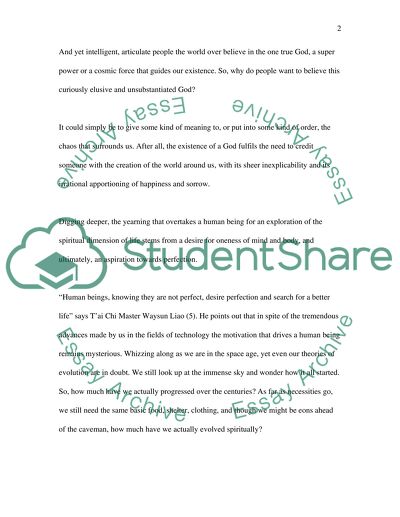Cite this document
(“Do we need to believe in a God or does God need us to exist Essay”, n.d.)
Do we need to believe in a God or does God need us to exist Essay. Retrieved from https://studentshare.org/religion-and-theology/1519672-do-we-need-to-believe-in-a-god-or-does-god-need-us-to-exist
Do we need to believe in a God or does God need us to exist Essay. Retrieved from https://studentshare.org/religion-and-theology/1519672-do-we-need-to-believe-in-a-god-or-does-god-need-us-to-exist
(Do We Need to Believe in a God or Does God Need Us to Exist Essay)
Do We Need to Believe in a God or Does God Need Us to Exist Essay. https://studentshare.org/religion-and-theology/1519672-do-we-need-to-believe-in-a-god-or-does-god-need-us-to-exist.
Do We Need to Believe in a God or Does God Need Us to Exist Essay. https://studentshare.org/religion-and-theology/1519672-do-we-need-to-believe-in-a-god-or-does-god-need-us-to-exist.
“Do We Need to Believe in a God or Does God Need Us to Exist Essay”, n.d. https://studentshare.org/religion-and-theology/1519672-do-we-need-to-believe-in-a-god-or-does-god-need-us-to-exist.


